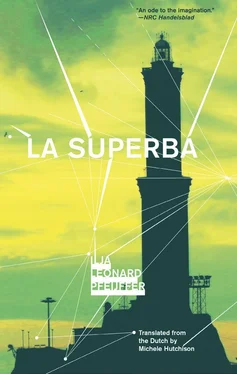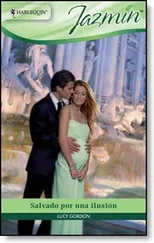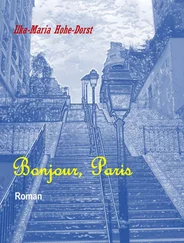Ilja Leonard Pfeijffer
La Superba
About the Author and the Translator
ILJA LEONARD PFEIJFFER, a classicist by training, made his literary debut with a poetry collection in 1999 that was an homage to the experimental poetry of his great models, Pindar and Lucebert. In the years that followed, in addition to poetry, he has written stage plays, essays, columns, travel accounts, stories, political satires, and four novels written in the spirit of Rabelais. In his other novels, including his debut he has toyed with the idea of world literature and divided the critics between those proclaiming him a genius and those who think him an antiquated stylist. He’s a bit of both. La Superba , published in Dutch in 2013, is Pfeijffer’s masterpiece of a novel, and was greeted with unanimous praise upon publication, including winning the Libris Literatuurprijs, the Netherlands’ most prestigious literary award, and the Tzum Prize, awarded for “the most beautiful sentence of the year,” which he has now won twice. His most recent poetry collection, Idyllen , published in 2015, became the first single work of poetry to ever win in the grand slam of the three major Dutch poetry awards — the VSB, Jan Campert, and Awater.
MICHELE HUTCHISON lives in Amsterdam and translates from Dutch and French. She has translated Ilja Leonard Pfeijffer, Joris Luyendijk, Simone van der Vlugt, Esther Gerritsen, and Pierre Bayard, alongside a number of children’s books, graphic novels, and poems. She also works as an editor and blogger.
A Zena a prende ma a non rende
PART ONE. The Most Beautiful Girl in Genoa
1.
The most beautiful girl in Genoa works in the Bar of Mirrors. She is neatly dressed like all the girls who work there. She also has a boyfriend who drops in on her from time to time at work. He uses hair gel and wears a sleeveless t-shirt with SOHO on it. He’s an asshole. Sometimes I watch them in the mirrors, kissing secretly in the cubbyhole where she prepares the small dishes they serve free with the aperitif.
This morning on the Via della Maddelena I saw someone who’d been mugged. “ Al ladro! ” he shouted. “ Al ladro! ” Then a boy came running round the corner. The man chased after him. He was wearing a white vest and he had a fat face and a fat belly. He looked like an honest man who’d learned to work hard for paltry pay from a young age. The boy ran uphill, to the Via Garibaldi, past the sundial and then carried on climbing, up the steps of the Salita San Francesco. The fat man who had been mugged didn’t stand a chance.
Later I sat drinking on the Piazza delle Erbe. It’s an unusual kind of place, evening just happens there without me having to organize anything. The little orange tables belong to the Bar Berto, the oldest pub on the square, famous for its aperitif. The white tables belong to the nameless trattoria where it’s impossible to eat without a booking. The red and yellow tables belong to various cafés and behind them there’s another terrace, a little lower down. I can look up the names if you’re interested. I was sitting at a blue table on the upper part of the square, looking out onto Bar Berto’s terrace. The blue tables belong to Threegaio, set up by three homosexuals who brainstormed for days on end and still couldn’t come up with a better name than that. I was drinking Vermentino from the Golfo di Tigullio. An impressive looking she-man wearing very dark sunglasses was sitting on a bar stool in front of the building. It was a reassuring sight, she was always there. Street musicians. Rose sellers. And then she spoke to me, “There’s something feminine about you.” She ran her fingers through my hair like a man claiming something as his own. “What’s your name?” Her voice was like a dockworker’s. “Don’t worry, I know. I’ll call you Giulia.”
That night there was a short but violent thunderstorm. I was on my way home when it started. I sheltered in an arcade. It had an official name I noticed later: Archivolto Mongiardino. The black sky lit up green. I’d never seen anything like it. The rain clattered down like two cast iron portcullises on either side of the vault. After a few minutes it stopped.
But the streetlights had gone out. In the alleys barely penetrated by daylight, a medieval darkness reigned. My house wasn’t far. I could find it by feeling my way, I was sure. Yes, the street went upwards here. This had to be Vico Vegetti. To my left and right, I felt scaffolding. That was right. There were renovations here. And then I almost tripped over something. A wooden beam or something similar. That’s what it felt like. Dangerous leaving something like that lying around in the street. I bent down to move it to one side. But it didn’t feel like wood. It was too cold and slippery for that. It was too rounded to be a beam. It felt strange, and a bit disgusting, too. I tried to use the light of my mobile phone as a torch, but it was too weak. I was almost home. I decided to push the thing behind the builders’ dumpsters and come back the next day to examine it. I was curious. I really wanted to know what it was.
2.
Prostitutes are for lunch. They appear around eleven or half past eleven. They hang around in the labyrinth of alleyways in the sloping triangle between Via Garibaldi, Via San Luca, and Via Luccoli, on either side of the Via della Maddalena, in small dark streets with poetic names like Vico della Rosa, Vico dei Angeli, and Vico ai Quattro Canti di San Francisco. In these alleys the sun doesn’t even shine at midday. They lean there casually against doorposts or sit in clusters on the street. They say things like “ amore ” to me. They say that they love me and they want me to come with them. They say they want to run their fingers through my hair. They are black. They are blacker than the anthracite shadows in this city’s entrails. They give off the smell of night in the afternoon. They stand there on haughty, towering legs, a flickering glimmer of arrogance in their eyes. They sink their white teeth into men’s pale white flesh. I don’t know how I’d ever get out alive. Civil servants with leather briefcases dart away skittishly.
Later I see them again in the Galleria Mazzini: Genoa’s magistrates in their shirtsleeves, dark blue jackets slung across their shoulders, their calf-leather briefcases filled with the few documents of any real importance in their sole charge. They like to walk on the marble floor, past the antiques on display, enjoying the lofty reverberations of their footsteps under the crystalline roof. Griffins with the Genoese coat of arms on their chests support the chandeliers, their beaks twisted with arrogance. If you walk through the Galleria from the Piazza Corvetto, you come out at the Opera. Where else?
I walked toward the sea. In the distance, a yellow airplane glided over the waves and scooped up water. There were forest fires in the mountains. I know people who can tell tomorrow’s weather from the height at which the swallows soar. But the low flight of a fire plane is the most reliable indication of a blistering summer.
I’ve bought myself a new wardrobe so that I can slip into this elegant new world a new man. A couple of Italian summer suits, tailored shirts, an elegant pair of shoes, as soft as butter but as sharp as a knife, and a real panama hat. It cost me a fortune, but I considered it a necessary investment to give my assimilation a boost.
That evening, I spoke to Rashid. He sells roses. I usually bump into him a couple of times a night. I offered him a drink. He came to sit with me for a while. He was from Casablanca, he said, an engineer who specialized in air-conditioning and refrigeration. In Casablanca, he has a large house but no money. That’s why he came to Genoa, but he can’t get a job because he doesn’t speak Italian. During the day, he tries to learn Italian from YouTube videos. In the evenings, he sells roses. Every evening he does the rounds of all the terraces to Nervi. Then he walks back. To Nervi and back is twenty-four kilometers. He lives with eleven other Moroccans in a two-room apartment. “Of course there are rats, but luckily they aren’t that big. All Moroccans think you can get rich without even trying in Europe. Of course they won’t go back until they’ve saved enough to rent a Mercedes for a fortnight and put on a show that they’ve become spectacularly rich and successful in Europe. It’s a fairy tale that gets better with every retelling. But I’ve seen the reality, Ilja. I’ve seen the reality.”
Читать дальше












